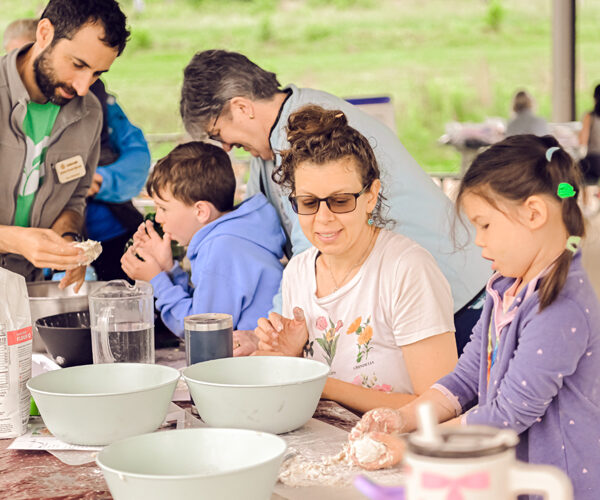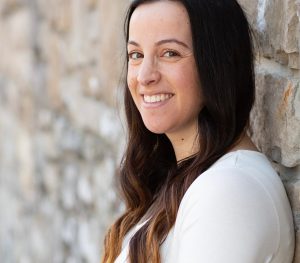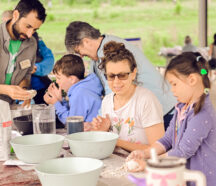Mental Health During a Pandemic
The struggle is real.
The pandemic has taken a significant toll on the mental health of many in Baltimore’s Jewish community. Fortunately, in these difficult times, The Associated: Jewish Federation of Baltimore’s agencies and programs are equipped to serve the needs of the community safely and effectively.
At Jewish Community Services (JCS), that means delivering therapy, support groups, new client consultations, triage, financial assistance and career coaching — all remotely.
Early on, JCS offered a series of free virtual programs called “Brief Bites” to help members of the community adjust to life during the pandemic. In recent months, the agency has provided interactive discussions on pandemic-related issues, as well as community-wide programs on addiction, and planning for financial, medical and end-of-life matters. JCS support groups for individuals with low vision, dementia caregivers, Parkinson’s patients and their families and those experiencing grief are also running online.
Joe Honsberger, Senior Manager of Therapy Services for JCS has seen an uptick in the incidence of anxiety and depression among clients since the pandemic began.
One group that has been severely affected by the pandemic is survivors of domestic violence, says Honsberger. “People are trapped in their homes, spending much more time with their abusers and they’re scared.” JCS is working in partnership with CHANA, The Associated’s Jewish response to domestic abuse and violence, to provide support to those clients.
If you need help, call Jewish Community Services at 410-466-9200.
But even relatively healthy relationships may be stressed by the constant togetherness required by working from home and social distancing.
“We’ve had more referrals of couples in recent months,” says Honsberger, who notes that substance abuse is also up.
“If you were coping with a drug or alcohol problem before the pandemic, it’s worse now. The pandemic kind of magnifies everything,” he adds.
That’s the case when it comes to isolation, a problem that’s especially prevalent among older adults, says Howard Reznick, JCS Manager of Prevention Education. “Older adults want to see and hug their children and grandchildren while at the same time they are highly cautious about Covid health concerns,” says Reznick.
JCS is working closely with other Associated agencies, including CHAI and CHANA to provide a range of services including, friendly calling for older adults.
Parents are another segment of the Jewish community facing significant stressors, says Reznick. “They’re trying to cope with having multiple children in and out of virtual and real classrooms while juggling part-time and full-time jobs.”
Mental Health and our Children
Unfortunately, children have their own COVID-19-related challenges, from difficulties with online learning to missing out on opportunities to build friendships and social skills.
Pre-teens, adolescents and young adults are deeply impacted by the social distancing requirements of COVID-19, says Reznick. “They have a need to socialize and connect.”
It’s a need that’s being addressed by QuaranTeen, a new virtual initiative by 4Front, a program for teens that’s housed at the Rosenbloom Owings Mills JCC.
Jessica Fink, librarian at the Macks Center for Education (CJE), recently met with Beth Hecht, Senior Manager for Community Engagement at JCS, to see how the CJE could best meet the needs of the youngest members of our community.
“I went over the different resources we have in the library about kids and mental health,” says Fink. “And I’ve also had to read all of the new books written about the pandemic and find the quality ones (see sidebar).
The CJE is also offering monthly professional community meetings for Jewish day school guidance counselors. “Not only do we need to have effective COVID-19 procedures and protocols in the schools, it’s also important to think about students’ mental health and well-being,” says CJE Jewish Education Coordinator Eli Bass. “The guidance counselors working in our schools are doing critical work and benefit from meeting with and learning from peers who share similar roles.”
“This pandemic has had a profound impact on every aspect of our day-to-day lives, in ways we never could have imagined,” adds JCS Executive Director Joan Grayson Cohen. “Individuals – young and old – and families have found themselves trying to adapt and cope with the overwhelming changes and the uncertainty.”
If you need help, call JCS at 410-466-9200.
For a complete list of Associated agencies and programs, visit associated.org/partner-agencies.
CJE Librarian Jessica Fink recommends these books for kids to help during the pandemic:
A Little Spot Learns Online: A Story About Virtual Classroom Expectation by Diane Alber
A Little Spot Stays Home: A Story About Viruses and Safe Distancing by Diane Alber
The Mask Mitzvah by Leora Lazarus
These and other books are available through CJE library as e-books or curbside delivery.
For a complete list of titles, go to cjebaltimore.org/library.
Subscribe to our newsletter
The Associated is a home for everyone in the Baltimore Jewish community. We offer several email lists to help people find a community, engage with their peers and support Jewish journeys around the world.
Join Our Mailing ListAdd Impact to Your Inbox
Sign up for our newsletter
Subscribe to our newsletter
The Associated is a home for everyone in the Baltimore Jewish community. We offer several email lists to help people find a community, engage with their peers and support Jewish journeys around the world.
Join Our Mailing List









 Please Wait while we loading your video.
Please Wait while we loading your video.